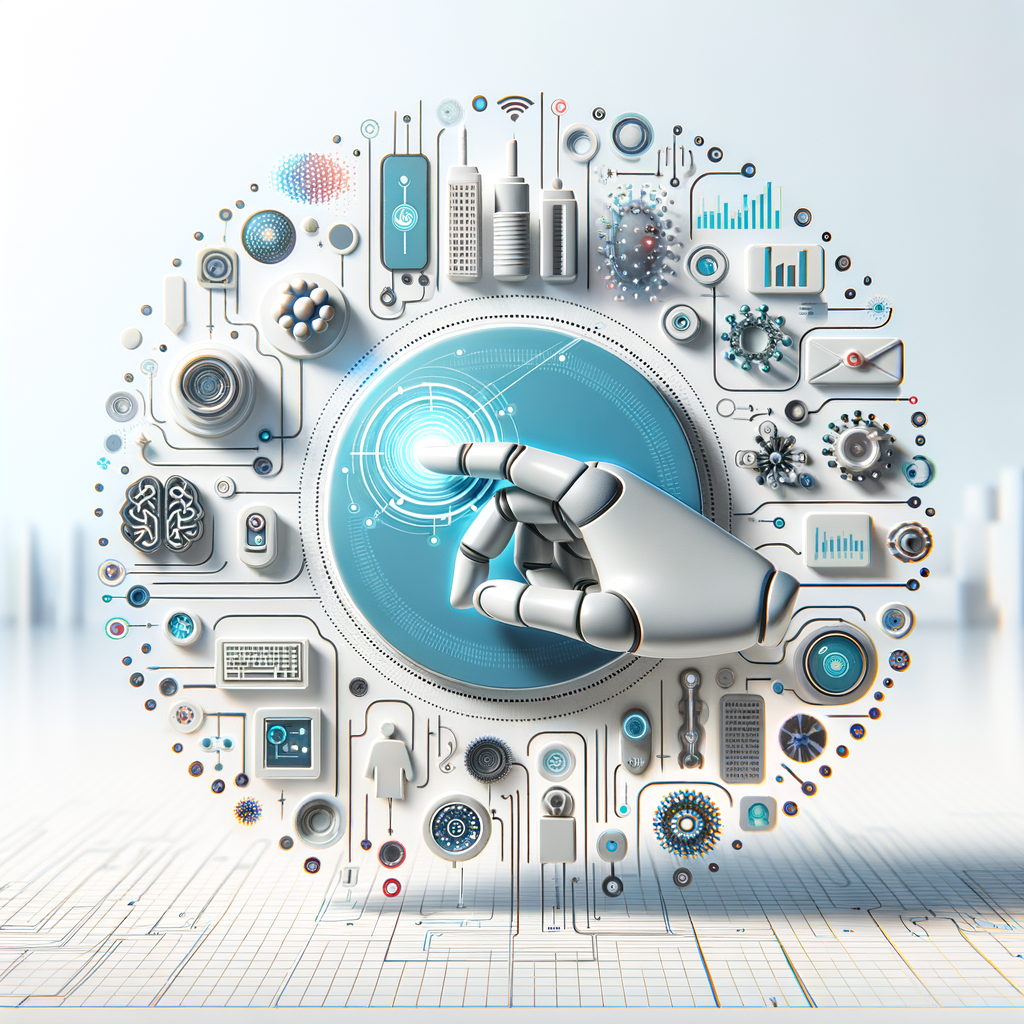
Navigating the AI Landscape: Trends Shaping the Future
In this in-depth exploration, we delve into the trends that are shaping the near and distant future of artificial intelligence. From innovative advancements in AI agents to the ethical considerations that accompany this technology, we're exploring how AI is redefining industries, enhancing personal experiences, and reshaping our daily lives. Discover the groundbreaking work in AI happening today and where it's headed tomorrow.
Navigating the AI Landscape: Trends Shaping the Future
Artificial Intelligence (AI) has been a transformative force in today's digital age, heralding unprecedented advancements across multiple sectors. The rapid integration of AI into various fields has opened new avenues for innovation while also presenting fresh challenges and considerations. In this blog post, we explore the latest trends and discuss how they are redefining the possibilities of AI in the coming years.
The Expanding Role of AI Agents
AI agents are becoming increasingly sophisticated, taking on more responsibilities across diverse domains. These agents utilize vast datasets to perform tasks with minimal human intervention, enabling automation on a scale previously unimaginable. This trend is particularly evident in sectors such as finance, healthcare, and customer service, where AI-driven solutions enhance efficiency and accuracy.
Autonomous Systems and AI Automation
One notable trend is the push toward more autonomous systems. These systems leverage cutting-edge AI technologies to operate independently, reducing the need for human oversight. Automation is streamlining processes, increasing productivity, and driving innovation in industries like manufacturing, logistics, and beyond.
Ethical Considerations in AI Development
As AI technologies continue to advance, ethical concerns are a growing focal point. Developers are facing mounting pressure to ensure that AI systems operate fairly, transparently, and without bias. Ethical AI development involves establishing robust guidelines to mitigate risks associated with AI misuse and ensuring that AI systems are aligned with societal values.
Ensuring Transparency and Accountability
Transparency and accountability are critical aspects of ethical AI implementation. AI systems must be designed to explain their decision-making processes, allowing stakeholders to understand and trust their outcomes. Establishing clear accountability measures ensures that entities responsible for AI systems are held to account for their actions and decisions.
AI in Personal Experiences
Personalization has emerged as a major trend within AI, with systems increasingly capable of tailoring experiences to individual preferences and behaviors. This is evident in areas such as digital marketing, retail, and entertainment, where AI tools analyze data to deliver personalized recommendations and content.
Enhancing Customer Engagement
AI's ability to personalize experiences is transforming how businesses engage with customers. By analyzing data from multiple touchpoints, companies can gain deep insights into customer preferences, enabling them to tailor their offerings and enhance customer satisfaction.
Transforming Industries with AI
AI is poised to redefine entire industries, driving innovation and reshaping operational models. Sectors such as healthcare, transportation, and energy are undergoing significant changes as AI technologies optimize processes, improve outcomes, and unlock new opportunities.
Healthcare Revolution with AI
In healthcare, AI is revolutionizing patient diagnostics and treatment plans through advanced models that analyze medical data with unprecedented accuracy. AI-driven healthcare solutions are improving patient outcomes while reducing costs and inefficiencies.
The Future of AI Trends
Looking ahead, AI's trajectory points towards even greater integration into our everyday lives. From smart homes to intelligent infrastructure, AI is expected to become a cornerstone of modern living, enhancing convenience, safety, and efficiency.
Smart Infrastructure for Smart Cities
AI-powered infrastructure is set to transform urban living, with smart cities leveraging intelligent systems to optimize resource use, enhance public safety, and provide enhanced services to residents. This trend is part of a broader movement towards sustainable development, with AI offering the tools to build more eco-friendly urban environments.
Conclusion
AI's influence on today's world is both profound and far-reaching. As the technology continues to evolve, so too will its impact, presenting new opportunities and challenges for industries and societies alike. By understanding and embracing AI's potential, we can ensure that its benefits are maximized and its risks are mitigated, paving the way for a more prosperous and technologically advanced future.